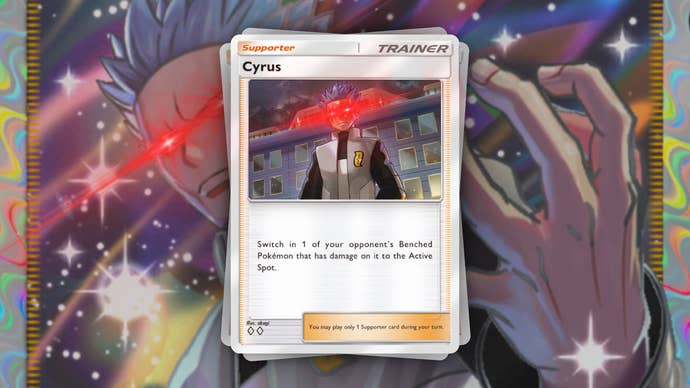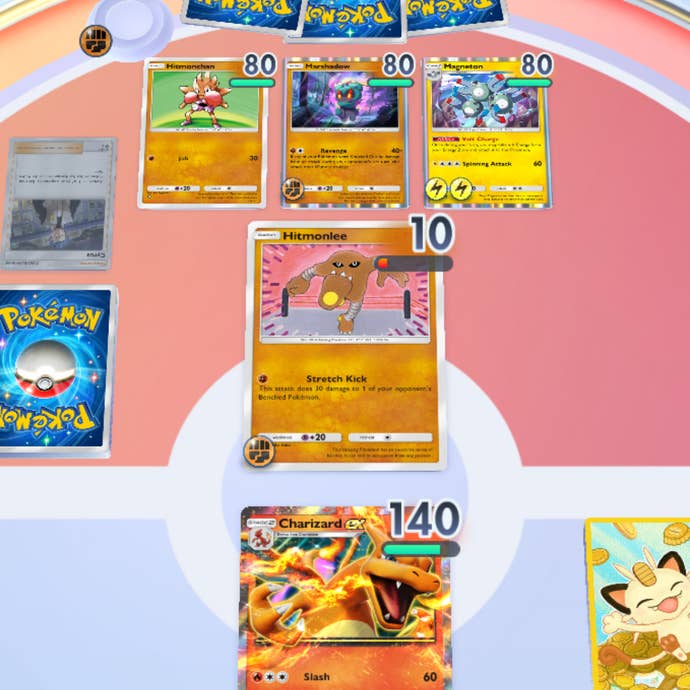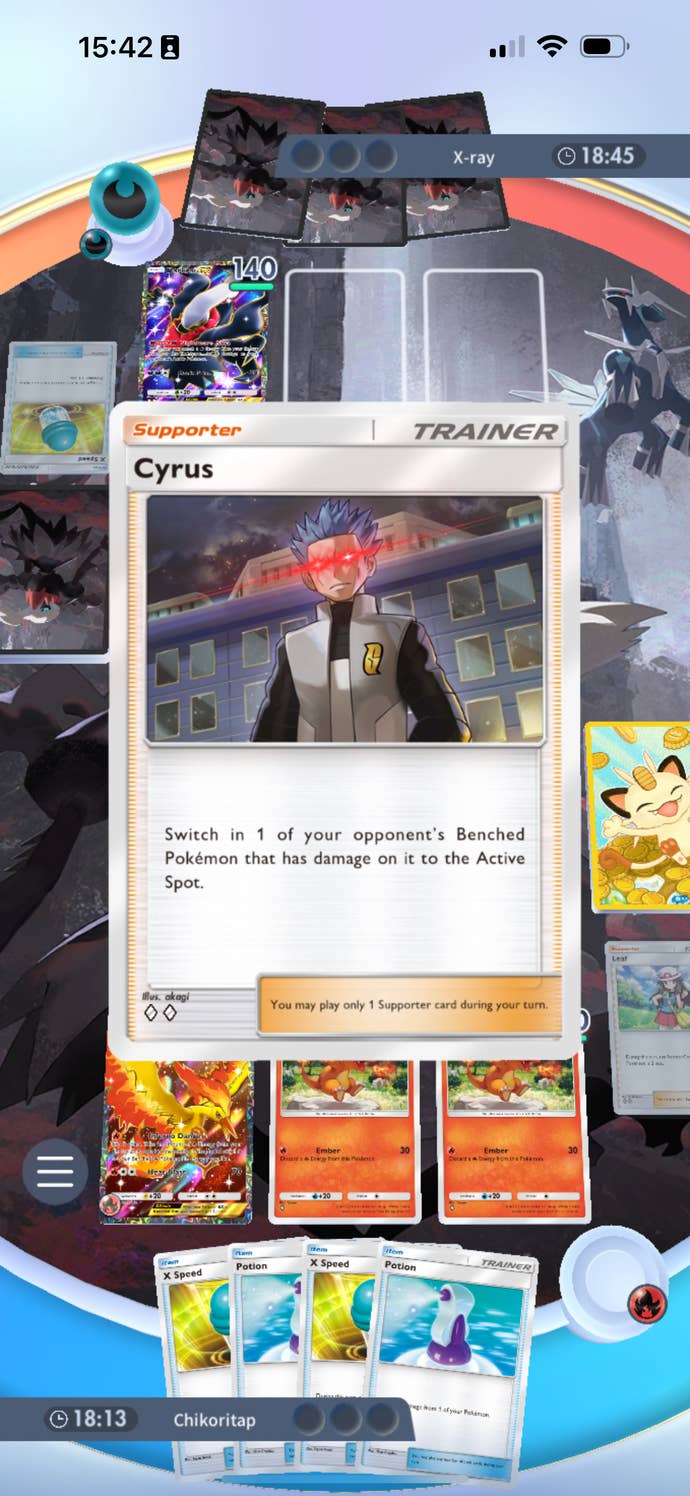He’s doing my nut in because he is, frankly, just very, very good.
Too good, in fact.
The Cyrus card is, by most competitive game developers' definitions, overpowered.

It’s ubiquitous, used in decks with little to no real synergy.
It’s having an outsized impact on the meta, elevating entirely new, dominating decks from obscurity.
But this isn’t League of Legends - and actually, I’m glad it isn’t.

Cyrus is overpowered, throwing the balance of Pokemon TCG’s meta all out of joint.
And probably a good lesson in what makes for good balance in competitive games full stop.
To wind things back for a moment: I actually think TCG Pocket has been remarkably well-balanced so far.
But let me bore you with that another time!)
Crucially though, each of these decks has had a pretty smart, direct counter.
But fundamentally the concept is the same.

And that’s fun!
You wind them up, wait for the right moment, and win or lose.
More specifically, the infuriating bit is how predictable it is.

But that’s also exactly what leads to the magic.
In Cyrus' case, the knock-on effects have been brilliant.
But it’s also blossomed out beyond that.
Each consequence has another consequence lurking just behind it, a kind of tactical cascade.
This, in a lot of ways, is the definition of an overpowered system in a game.
Paradoxically, I think it’s also the definition of how to handle balance.
Perfect balance - in the literal sense - leads to a kind of strategic flatness.
Imbalance leads to invention.
And really, that’s what any good competitive scene is all about.